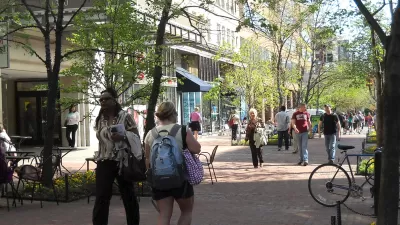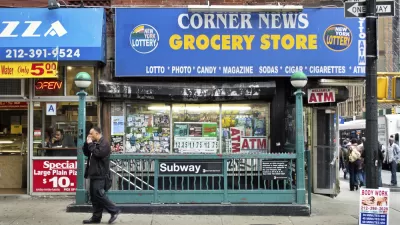Government support has helped open stores in underserved communities, but cost and scale make it difficult for small businesses to survive long-term.

In 2018, Illinois launched a $13.5 million initiative aimed at bringing grocery store options to areas known as ‘food deserts’ — “defined by the U.S. Department of Agriculture as any low-income urban neighborhoods without a grocery store within a mile, and any rural communities without one within 10 miles” — where residents have a hard time accessing healthy and affordable foods.
But of the six stores that opened that year, four have closed, highlighting the problem of longevity for such projects that receive initial fanfare but little ongoing support.
As Molly Parker explains, “Capitol News Illinois and ProPublica examined 24 stores across 18 states, each of them either newly established, preparing to open or less than five years old when they received funding through the federal USDA Healthy Food Financing Initiative in 2020 and 2021. As of June, five of these stores had already ceased operations; another six have yet to open, citing a variety of challenges including difficulties finding a suitable location and limited access to capital.”
Ultimately, the investigation found, “For all the benefits the opening of a store can bring to a community, if it can’t compete on pricing, it will struggle to survive.” Although food deserts are defined by distance, other factors — the ability to buy in bulk, broader options — can still prompt people to travel farther for better deals. Meanwhile, some suppliers won’t work with small, independent stores.
To support the growth and longevity of local stores, Illinois launched a new program that will focus on supporting startups and small, independent stores. “And for the first time, government-owned stores in Illinois are eligible to apply for state aid. Chicago is the first major city in the nation to consider this option, though underwriting losses with taxpayer funds is controversial.”
FULL STORY: The Government Spends Millions to Open Grocery Stores in Food Deserts. The Real Test Is Their Survival.

Trump Administration Could Effectively End Housing Voucher Program
Federal officials are eyeing major cuts to the Section 8 program that helps millions of low-income households pay rent.

Planetizen Federal Action Tracker
A weekly monitor of how Trump’s orders and actions are impacting planners and planning in America.

The 120 Year Old Tiny Home Villages That Sheltered San Francisco’s Earthquake Refugees
More than a century ago, San Francisco mobilized to house thousands of residents displaced by the 1906 earthquake. Could their strategy offer a model for the present?

Alabama School Forestry Initiative Brings Trees to Schoolyards
Trees can improve physical and mental health for students and commnity members.

NYC Outdoor Dining Could Get a Re-Do
The city council is considering making the al fresco dining program year-round to address cost concerns from small businesses.

HSR Reaches Key Settlement in Northern California City
The state’s high-speed rail authority reached an agreement with Millbrae, a key city on the train’s proposed route to San Francisco.
Urban Design for Planners 1: Software Tools
This six-course series explores essential urban design concepts using open source software and equips planners with the tools they need to participate fully in the urban design process.
Planning for Universal Design
Learn the tools for implementing Universal Design in planning regulations.
Ada County Highway District
Clanton & Associates, Inc.
Jessamine County Fiscal Court
Institute for Housing and Urban Development Studies (IHS)
City of Grandview
Harvard GSD Executive Education
Toledo-Lucas County Plan Commissions
Salt Lake City
NYU Wagner Graduate School of Public Service





























